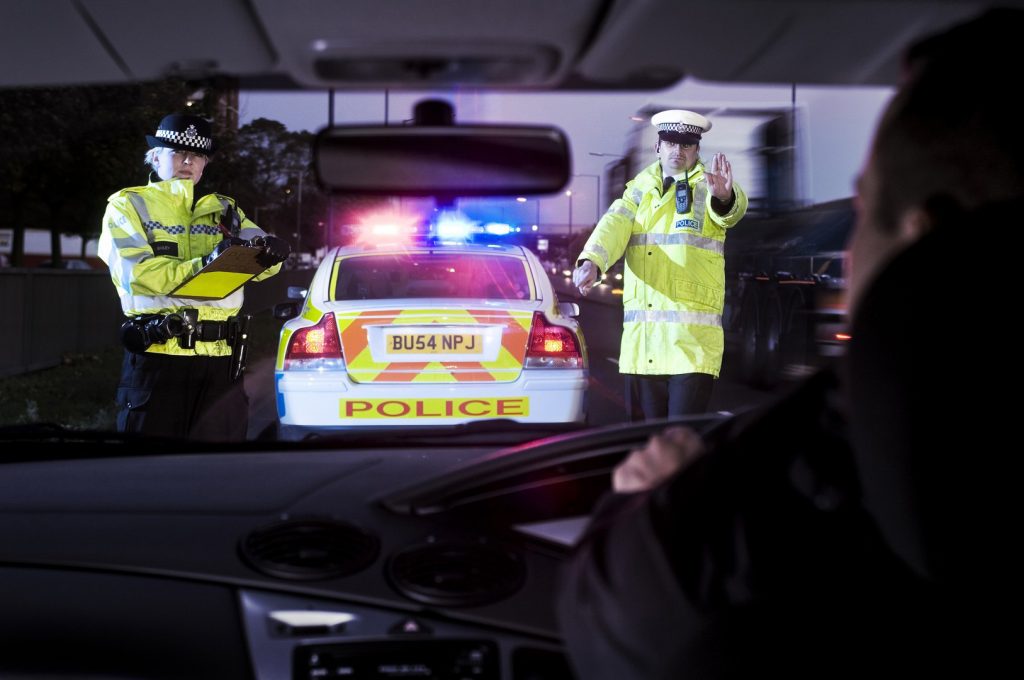If you didn’t see the story in the news, police in Craigavon, Northern Ireland, arrested a man on 13 May 2017 for drink driving after his car reported he had crashed.
You don’t have to travel that far back in time to reach a point where this story would have read like science fiction. Most people didn’t even own a mobile phone until the ‘00s – so, if you crashed your car in the ‘90s, you either limped to the nearest house or phone box, or flagged down a passing car.
The future is here…
In this age of increasing vehicle autonomy, more and more cars know if you have crashed and will automatically alert the police. If cars are calling the police when you crash, we wondered what other crazy things cars might start doing to keep us safe. It turns out some of them already exist!
Here are just a few safety features:
1. Speed limiters
Every road has a speed limit, and most people don’t intentionally speed. So, wouldn’t it be helpful if there was tech for your car that simply prevented you from speeding? Well, there is!
Speed limiters, which work by restricting the amount of fuel released into the engine, can be installed into most cars. In fact, in the UK, any van or lorry “with maximum laden weight of more than 3.5 tonnes”, or any vehicle with more than eight passengers, is required to have a speed limiter fitted for safety reasons.
With its release of the semi-autonomous S-Max in August 2015, Ford took speed limiters even further. Sensors in the car read road signs as you drive, automatically adjusting the maximum speed allowed on the limiter. It’s this sort of autonomous technology that is bringing us closer to the driverless ideal.
2. Built-in breathalyser
It’s great that there are cars that will call for help in the event of an accident, particularly in the case of drunk drivers. But wouldn’t it be better if drink drivers weren’t able to drive in the first place?
As with most clever ideas, someone has already thought of it. Companies such as Alcolock have developed breathalysers that immobilise your car if you’re over the limit.
Perhaps car manufacturers will add this as an autonomous feature in the future. It would certainly reduce the number of drink-driving accidents before driverless cars make them a thing of the past.
3. The Faraday Cage car
In May 2017, Nissan announced that they are working on a prototype arm-rest container to block all calls, texts and notifications to your mobile while you’re driving. It is hoped that this will reduce the number of accidents caused by people using a mobile while driving.
Unfortunately, the Faraday Cage as planned by Nissan requires you to place your phone into the box – and it does allow you to make Bluetooth calls with the lid open. In these interim years before driverless cars become commonplace, it is, however, a step in the right direction.
4. Self-installing car seats
Automatic seat belts aren’t a new concept – the Toyota Cressida, launched in 1981, was the first car to include them as standard, and they didn’t get a particularly rapturous response. See this classic video.
However, self-belting car seats are new. And if you’re a parent reading this, your interest has probably just been piqued. Don’t get too excited – there’s only one on the market so far, and you still need to make some actions, albeit small. But it’s good to know that cars with fully autonomous self-installing car seats are feasible in the near future.
5. Anti-tailgating tech
On a busy, wet or icy road, it’s easy to misjudge the distance between your car and the car in front. However, there are devices that can be fitted in your car that tell you when you’re tailgating – or when someone is tailgating you!
Taxis in Dubai have been fitted with anti-tailgating devices since 2015 in a bid to reduce the number of car accidents. Currently, the driver must act on the advice they are given. But it won’t be long before cars have autonomous systems that prevent cars getting too close in the first place – and when driverless cars are standard, it’s this kind of technology that will make the roads a safer place.
You could argue that the reason the “car reports its owner” story got the exposure it did isn’t because the car reported the crash, but because it led to the arrest of the driver, who was over the legal alcohol limit. But if the story and the technology mean fewer accidents, then it’s all a step in the right direction.
This is the exciting aspect of modern car innovation. We may not have fully driverless cars on all our roads just yet, but the push for technological advancements are resulting in clever, semi-autonomous safety features like the self-reporting car.
We can’t wait to see what innovators come up with next – what about you?


